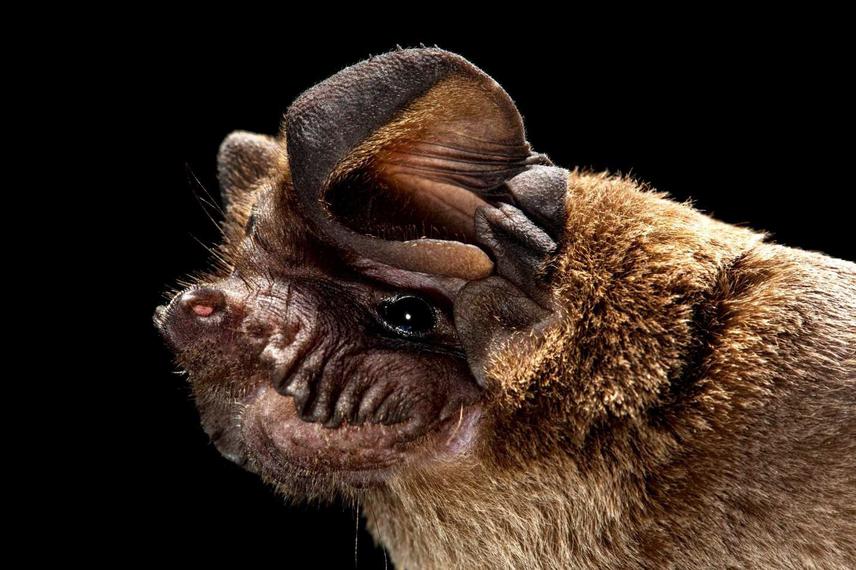Neil M Furey
As cave biodiversity in Cambodia is poorly documented and heavily threatened, this project will undertake cave surveys and capacity-building activities to: a) identify key sites for Cambodian cave biodiversity, b) develop public awareness and capacity for its management, and c) produce a national status review advocating its conservation.

Wrinkle-lipped bat Chaerephon plicatus. © Merlin Tuttle
Limestone caves in SE Asia support important biodiversity which has been largely neglected by the conservation community to date. This is especially true in Cambodia. Linked to their exceptional and vulnerable bat assemblages, Asian caves often support concentrations of site-endemic invertebrates. However, cave bats in Asia are heavily threatened by destruction of roost sites and disturbance from show cave development and guano harvesting, as well as hunting of bats for bushmeat and loss of foraging habitats. Recent observations indicate these issues pose major concerns in the two major karst areas of Cambodia. As almost no caves in western Cambodia have been surveyed and none are legally protected for their biodiversity yet, there is an urgent need to identify and protect key sites for cave biodiversity nationally.
The project will complete rapid surveys of all ≥65 caves known in the Battambang karsts to:
a) identify and characterize key sites for conservation in terms of their biological, economic and cultural values,
b) determine threats to these sites by establishing their associated human-cave interactions.
As disturbance is highly detrimental to cave-dwelling bats during reproductive periods such as late pregnancy and lactation and a potentially important driver in the emergence of zoonotic diseases, we will also undertake monthly surveys at major colonies to identify these critical periods and collect samples to determine if viruses with human-pathogenic potential are present. Over the course of the project, we will build capacity for biological research and cave conservation at local and national levels by:
a) training site managers and students through learning-by-doing in cave surveys, data analysis and preparing papers for peer-reviewed publication;
b) developing local awareness and management capacity through dissemination of educational materials and best practice protocols for guano harvesting and cave management;
c) producing a national status review for cave-dwelling bats in Cambodia.
This will result in several conservation outcomes with long-lasting implications. Beyond their contributions to regional mammal diversity, SE Asian bats provide vitally important services to society by controlling major insect crop pests and disease vectors and supporting local incomes through the sale/use of guano and site-based ecotourism ventures. By raising awareness of these values and building capacity for conservation of cave biodiversity, the project will directly contribute to improved food security, public health and sustainable economies in the region.